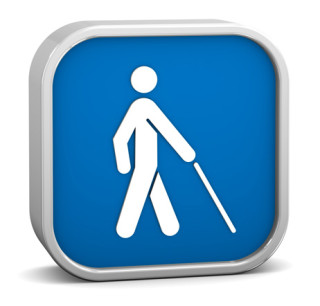 Do you support children with vision impairment? Please encourage parents to join the Australian Childhood Vision Impairment Register to help build an accurate picture of children with vision impairment. Proudly sponsored by the Royal Institute for Deaf and Blind Children.
Do you support children with vision impairment? Please encourage parents to join the Australian Childhood Vision Impairment Register to help build an accurate picture of children with vision impairment. Proudly sponsored by the Royal Institute for Deaf and Blind Children.
Category Archives: Latest News
White Cane Day
 Wednesday 15th October is International White Cane Day. This day celebrates the independence of mobility for white cane users. Vision Australia is hosting an International White Cane Day at Federation Square
Wednesday 15th October is International White Cane Day. This day celebrates the independence of mobility for white cane users. Vision Australia is hosting an International White Cane Day at Federation Square
Guide Dogs
Guide Dogs Queensland are hosting an unforgettable evening, featuring a sensory dining experience under blindfold, Dining in the Dark. Saturday November 15th 6:30pm – 11:30pm. Ticket price includes canapes on arrival, 3 course dinner, and drinks. Find out more or purchase tickets at Dining in the Dark. All proceeds from the evening will be used to help breed, train and place Guide Dogs with Queenslander with no or low vision.
In the News
Assistive technology for the blind student
This article was published in the June 2014 edition of the Australian Teachers Magazine and is well worth reading.
Smart Pen
 We have recently been trialling the Livescribe Smart pen for students with vision impairments. It is a great way to record lectures with simple playback. Also very useful tool to use to create audio-tactile graphics. You can even email pencasts to your students to explain what to do!
We have recently been trialling the Livescribe Smart pen for students with vision impairments. It is a great way to record lectures with simple playback. Also very useful tool to use to create audio-tactile graphics. You can even email pencasts to your students to explain what to do!
Livescribe has many tutorials and ideas that will assist you in the classroom.
Welcome
Welcome to the ‘eye tea’ website. We are in the process of creating a one stop website that links to all the great sources of access technology to assist professionals working in the field of vision impairment. Vision Impairment is very heterogeneous by nature (Blatch, Nagal & Cruickshank, 1998). Each person with vision impairment will have individual needs, depending on their vision and presence of other disabilities. It is extremely important to have a functional vision assessment and a technology assessment to ensure they are able to access information to participate as independently as possible in their home, school or work and community.
Blatch, P., Nagal, G., & Cruickshank, L. (1998). Current Practices and Future Trends. In P. Kelley & G. Gale (Eds.), Towards Excellence (pp. 17-32). North Rocks, Sydney: RIDBC.

